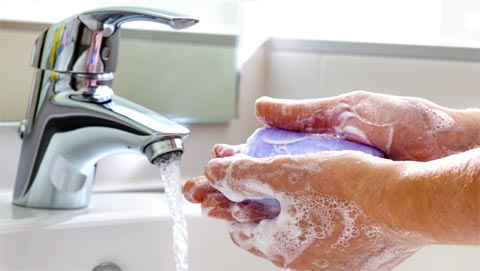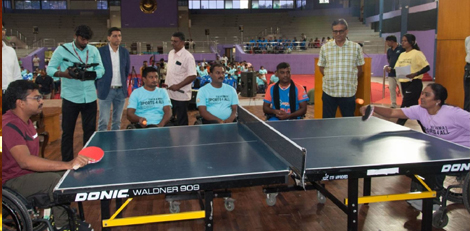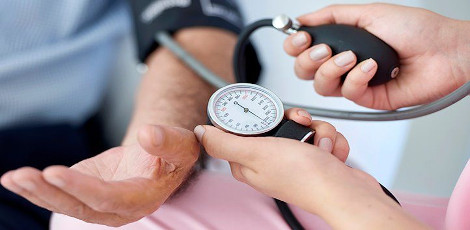Allow 20 seconds for effective hand washing - Columbia Asia Hospital
Posted on: 15/Oct/2017 6:26:27 PM

One basic hygiene that is taught since our childhood is �hand washing�. But most of us do not know the process of hand washing while it certainly is an essential practice for a healthy living. This year�s theme is �Our Hands, Our Future�, reminding us that handwashing protects our own health, but also allows us to build our own futures, as well as those of our communities, and the world.
�People all over the world wash their hands with water. It is a common place belief that washing with water alone is sufficient to make hands clean. However, using soap is more effective to remove germs and leaves hands smelling pleasant. With proper use, all soaps are equally effective at rinsing away the germs that cause disease. Every year, more than 3.5 million children worldwide do not live to celebrate their fifth birthday because of diarrhoea and pneumonia. Handwashing is effective in preventing the spread of disease even in overcrowded, highly contaminated slum environments�, said Dr. Firozahmad Torgal- Consultant, Emergency Medicine, Columbia Asia Referral Hospital, Yeshwanthpur.
Effects of Improper Handwashing - Handwashing with soap works by interrupting the transmission of disease. Hands often act as vectors that carry disease-causing pathogens from person to person, either through direct contact or via surfaces. Unwashed hands that have been in contact with human or animal excretions and secretions, contaminated foods or water can transport bacteria, viruses and parasites.
The Process � �Sing the Happy Birthday Song Twice while washing your hands� - One should cover wet hands with soap; scrub all surfaces of hands, including palms, back, between the fingers and especially under the fingernails, for at least 20 seconds; rinse well with running water; and dry either on a clean cloth or by waving in the air. An easy way to gauge 20 seconds is to sing the �Happy Birthday� song twice.
When to do a handwash
Handwashing with soap is among the most effective and inexpensive ways to prevent diarrhoeal diseases, pneumonia, intestinal worm, skin and eye infections, SARS and Avian Flu, and benefits the health of people living with HIV/AIDS. Performing proper hand washing requires soap and only a small amount of water.
In our homes and communities, certain groups of people namely, new-borns and children, elderly and immunosuppressed patients like dialysis patients, transplant patients, patients post-surgery and those with cancer, are more susceptible to infections. The critical moments to perform handwashing are after touching children in diapers; after touching clothing, bedding, toilets, or bed pans soiled by someone who has diarrhoea; after gardening; any time you touch pets or other animals; including dirt in your garden and other places. Even if you wear gloves when you do these activities you should still wash well when you finish. Children should be supervised by adults to make sure they wash their hands well.
The challenge is to transform handwashing with soap from an abstract good idea into an automatic behaviour performed in homes, schools, and communities. Handwashing with soap before eating or handling food and after using the toilet could save more lives than any medical intervention.
This October 15th, whether you are celebrating a at school, in a health facility, or with your community, let us all wash our hands and invest in a better future!







